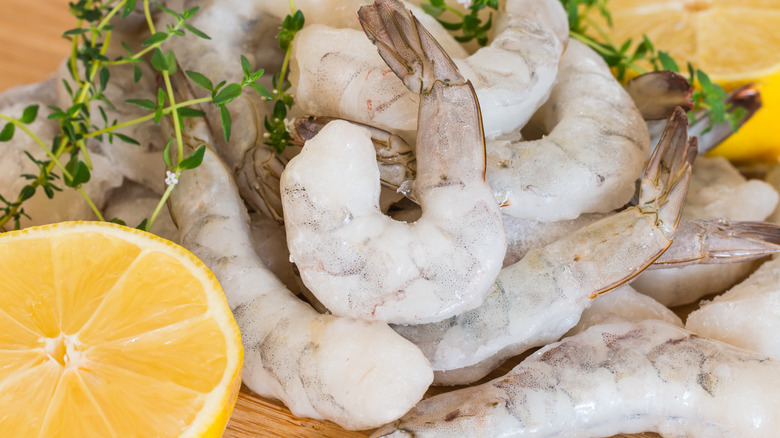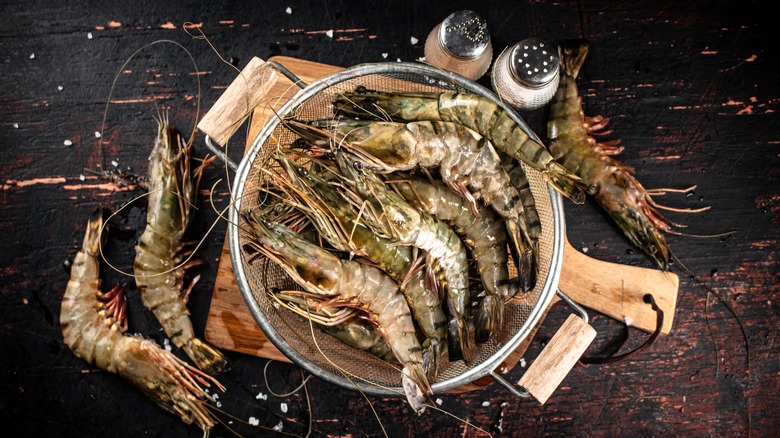The Absolute Best Way To Thaw Frozen Shrimp Without Ruining It
Having frozen (and sometimes shelled and deveined) shrimp available to thaw at any time is the kind of convenience that should make us all happy to live in the modern world. Shrimp is a quick and delicious seafood option that can be used in tons of different recipes, either as the main focus, or as a topping for salads, pasta, and rice. But without the modern freezing process used by fishermen, they wouldn't be an accessible option (via Serious Eats). Shrimp are highly perishable, and basically impossible to get truly fresh in much of the U.S. Instead, shrimp are frozen right on the boat where they are caught, preserving them at peak freshness and saving the day for millions of hungry home cooks who are really craving some shrimp scampi.
Beyond being convenient, frozen shrimp can be almost as good as truly fresh shrimp, but you do need to be careful how you prepare it. Poorly handled or cooked shrimp can end up mushy, mealy, or rubbery — a huge disappointment when you know how good a crisp bite can be. Allrecipes notes that overcooking shrimp is the most common mistake people make, because shrimp cooks way faster than most realize.
Another problem you can have is thawing shrimp wrong, which can mess up your meal just as much as overcooking. Thankfully there is a low-effort method for thawing frozen shrimp that gets great results every time.
Thaw shrimp in the refrigerator using a colander
There are a few different ways to thaw shrimp that will give you decent results. Bon Appétit states that if you are pressed for time you can thaw frozen shrimp by putting them in a sealed bag in cold water, or even just fully submerging them in the same water for about 20 minutes. While both of those methods will work, the ideal method is to plan ahead and defrost your shrimp in the fridge overnight. According to The Spruce Eats, you should do this by taking them out of the bag and placing them in a colander over a bowl. This way, as they defrost and melt, they drain off and avoid becoming soaked in their own juices.
The reason this method is best is the same reason you should pat shrimp dry before you cook them: moisture is the enemy of perfectly cooked shrimp. This might seem counterintuitive — shrimp come from the water, after all, but as Food52 notes, excess moisture extends the time it takes for shrimp to cook and brown. Because shrimp are so prone to overcooking, the extra time they need in the pan because of that excess moisture is going to put them one step closer to being overdone. In fact, even shrimp that weren't frozen can benefit from sitting uncovered in the fridge to dry out.
So, thaw your shrimp right, and you'll be rewarded with the most tender, juicy shrimp you've ever made.

